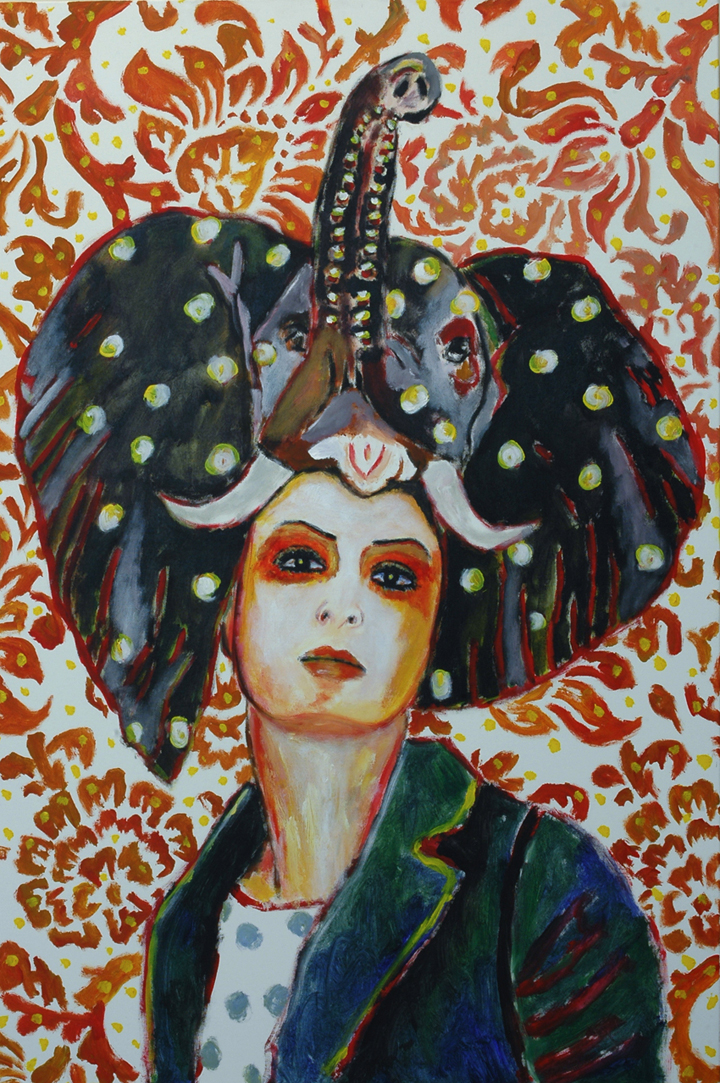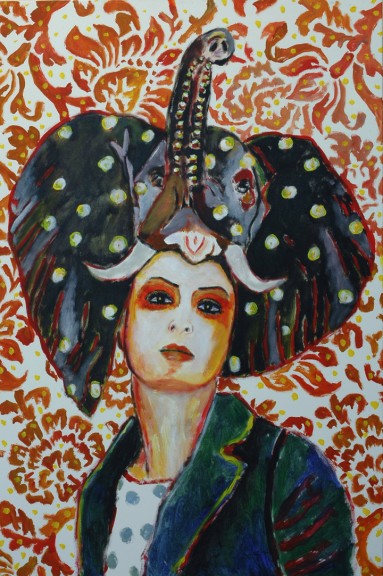Five Questions with __________ is an experiment with flash interviews. The series continues with poet Elaine Equi. At the risk of bordering on superlatives, which this project has taken care to avoid, her renderings of material life are among the most exquisitely witty and awake in contemporary American poetry. She herself has characterized her writing as 'willfully direct in a minimalist sort of way,' though she could have said, without a trace of immodesty, that it is a kick in the gut followed by an equally unexpected, wry smile. Her decades-long work submerges itself in a capacious range of topical matter. What genuinely makes one its frequent visitor, however, is the will to adopt a decentered style as a style of its own.
Many have discarded the unit of a stable or cohesive poetic 'self,' yet that stance has seldom been followed by a poetics of transformation. Michel Foucault's self-described imperative in life and work was 'to become someone else that you were not in the beginning.' One can't help but read that M.O. in Equi (this line is oft-quoted but I quote it again: 'All writing is a form / of transvestism… / Nothing can stop this / endless, transformative / flow of selves / into other, opposite'). Her theses on rearrangement, change, and mutation are highly persuasive, especially as they are guided by a concern greater than the sum of one person's metamorphosis. In 'Role Reversal,' she compares art in the age of Stendahl and Flaubert with art in the age of the hyperreal: 'Once reality was dumb and brutish— / in need of art for elevation. / But it's changed— / grown baroque and multifaceted. / Today we no longer take reality for granted. / Now art is the simpleton.'
Of course, with the ubiquity of advertising and market capitalism manifesting human interaction as primarily transactional, there is a particularly modern danger about transformation. Equi's poetry—baroque and multifaceted—is a sign of heightened possibility, a shield facing that oncoming peril.
Why or for whom does the myth of a ‘muse’ endure?
I’m not sure the myth of the muse does endure. I’ve never been much for courting muses, but if I were in the market for one, I’d want to go old school and have a genuine deity. The problem is for that to work, you need the necessary faith. The Greeks had it. They had intense personal relationships with their gods, so that they didn’t just ask for favors, they actually seemed to channel them. When Sappho calls on Aphrodite, the goddess is quick to respond: “Sappho, who does you wrong?”
The idea of a flesh and blood muse that is the embodiment of some ideal is problematic for me. It sounds more like an obsessive love affair where so much depends upon sublimation. I know Dante had Beatrice and he did okay, Breton had Nadja, Martin Scorsese had Robert De Niro before he switched to Leonardo DiCaprio. I make no judgments, I just think I’d feel more ensnared than inspired under those conditions.
Recently, while walking around the East Village, I saw a young woman with long, blue-black hair, smoking a cigarette. She was wearing a low-cut tee shirt that showed off the word “Muse” tattooed across her collarbones like a necklace. Being a literalist, I took her at her word. It was rather exciting like spotting a rare butterfly, but also perhaps a sad comment on our times when even Muses have to advertise their services. For a moment, I toyed with the idea of introducing myself, but in the end didn’t. Exploring my own idiosyncratic interests, however trivial, seems preferable to creating great art in the name of someone else.
If offered a cosmic opportunity for redress after enslavement, sorrow, and resource deprivation, what would the animals say?
What would animals want? Not money—where would they spend it? And I don’t think they’d forbid hunting, since they themselves enjoy the pleasure of the chase. They might even let us keep our leather boots and fur coats for similar reasons, though some sort of arrangement would have to be made to limit those interests.
My biggest hope if animals had a voice in our affairs can be summed up in two words: gun control. With their constituency firmly behind it, maybe we could finally pass a bill outlawing firearms.
Does the fact that language is a genetic and biological fact for 100% of human beings make writing the hardest of the arts?
No, I think it makes it easier. Since most people have to write for school, their jobs, letters to friends—they’re more sympathetic to the problems writers face and better able to evaluate a literary work.
Music has always seemed infinitely more difficult to me, but that’s probably because no one in my family played an instrument or sang.
When is it more important to seek one’s inner adult than one’s inner child?
My inner adult is petty and childish and my inner child never really learned how to play. They sort of cancel each other out. Besides, I agree with Gertrude Stein that in our own minds we are only one age—neither too young or too old. Anything else, as she puts it, “must be a horrid feeling.”
What is to be done with the misspent drive, lost urgency, or inertia that accompanies revision?
If I’ve exhausted a number of approaches and still am not satisfied with a poem, I throw it away. In general, I like throwing things away. It makes me feel happy and unburdened. If the original idea had any merit, I feel it will make its way back to me in another incarnation—and often it does. Of course, this method wouldn’t be good if I wrote novels or even long essays, but for poems, it’s perfect.
That said, while I’m working on a poem, I’m very good at playing the waiting game. I can spend weeks or even months on a couple of lines. If I don’t know how a poem ends, I don’t continually rewrite it. I just keep rereading what I have, then put it aside and do something else. The method is kind of like the story about the shoemaker and the elves. You lay out the pieces and when you’re not paying attention, they somehow assemble themselves. You wouldn’t think it would work, but it does.

